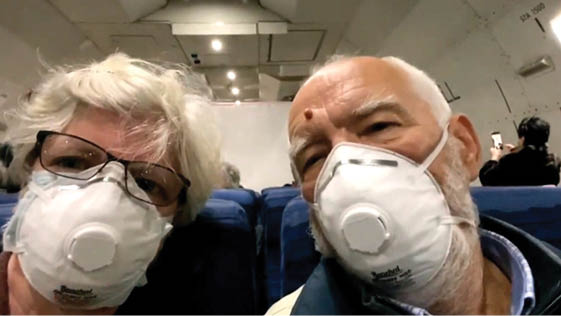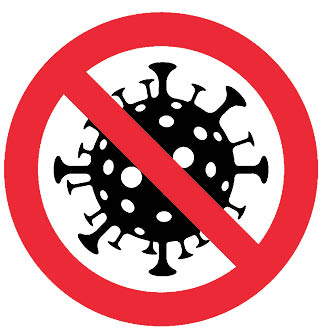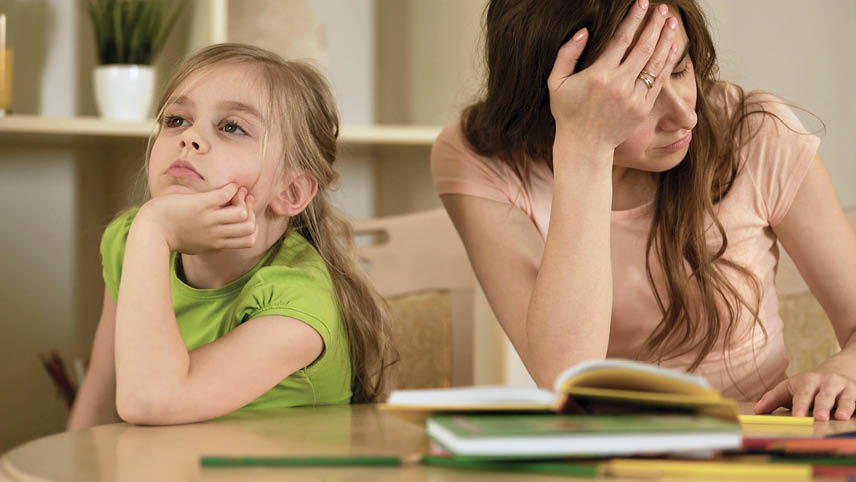Veera is a published Author (‘Endured’ and ‘#LoveBitesLifeHacks’) and Columnist; a passionate Educator and Counsellor; Poet and Philosopher… but most of all, a lover of all things literary.
Even as India, and other nations across the world work towards flattening the dreaded COVID-Curve, the protocols of the lockdown has a large number of us struggling with feelings of panic, gloom and fear. Most of us do our best to protect ourselves and others – hand-washing, sanitizers, social-distancing and just staying safe indoors. But there’s a growing restlessness, in fact, it is now our new normal. While much has been said, promoted and recommended to safeguard our physiological health and hygiene, not enough has been emphasised in respect to maintaining our mental well-being.
Even before the virus outbreak, depression and anxiety have been noted as defining features of our time. Isolation and uncertainty are not going to help us deal well with the new realities of this new normal! Cabin fever – a side-kick of being chronically constrained to small places, is becoming a common symptom. The online media onslaughts of rapidly updating stories reporting worst-case scenarios also fuel fear and panic all around. All this attributes to consistently eroding our most precious and essential human resource – our mental health.
It has been proven beyond doubt that our brain and our immune system are deeply linked to each other – studies show how sustained stress can be detrimental to our immunity. In these times, mindfulness to improve our physical and psychological well-being is imperative. Investing in our mental health pays long-lasting dividends. Being an educator, counsellor and someone who friends, students and parents often turn to, from time to time, I have been receiving an increasing number of calls, of late. While some simply need a sympathetic ear, others seek clarity under these trying times. The questions may differ, the situations may vary and the concerns may be different, but the one commonality they all pose is the underlining fear and anxiousness…
A dear friend, Diane, living in Pune, called me the other day stating that her immediate neighbour – a young couple – were constantly entertaining friends from within the gated community complex she lives in. The friends were the same regular culprits each time. Her question to me was, “Is that ok, or should I raise the alarm bells to the Housing Committee?”
My answer was simple, it’s certainly not ok, to socialize or expose yourself or others in the present situation. It’s taking a risky chance – like a lethal game of Russian roulette, where the gun has six chambers and one loaded bullet. You may be lucky five times, but it takes just one unfortunate instant which could end your life! These are dire times and circumstances demand zero exceptions and certainly no allowances. The only people you should be seeing are those you can’t avoid – the ones you live with. Statistics increasingly prove that there can be pre-symptomatic or asymptomatic transmission. Being clueless about who could be a carrier is way too great a risk to take at the moment. You may trust your friends, but DO NOT trust this virus! It’s as simple as that!
In another instance, Nina – my student Tara’s mother, called me yesterday saying, “I am at the end of my rope! While this home-schooling bit seems to be working just fine for Tara, I feel I’m the one doing all the work! How do I get her to focus and finish assignments on time?”
One needs to understand that the concept of home-schooling is as new for the kids as it is for their parents! With homes now occupied to full capacity, everyone is vying for space and time and just juggling their act… the new normal isn’t easy on anyone. Parents need to redefine boundaries and need to get a grip on this new normal. While there are no special time-frames or operative tools or techniques for parents to get children to complete their work on time, they need to understand that just because your children are studying from home, they are neither privileged nor justified in seeking redress from school work. “Make sure Tara understands that this is not an extended holiday but a normal school term – the only difference being, it’s from home,” is what I told her. In keeping with how mainstream schooling follows a schedule and a time-table, I added, “make sure that you as well as Tara follow that by creating a structure. Late show-ups, incomplete assignments, work not done should have similar consequences as in regular schooling programmes.” While Tara just needed some structure and rules, Nina needed to stop being that hovering helicopter mom/teacher rolled up in one! One needed to take control, and the other needed to concede it. We should remember these are extraordinary times and we need patience to adjust, accept and cope with this new normal.
The other day, my friend Rashna called from the US, worried about her elderly parents who live by themselves, along with their live-in help. “My Dad is diabetic and mom can hardly walk! I am so worried! I wish I were closer, I just don’t know what to do!”
This is the sad reality of the situation we are facing currently. While elderly parents, neighbours, loved ones living on their own, are always a cause of worry, under the present situation, these worries get compounded several times over. Knowing her parents live in Rustom Baug, I reassured her stating that our colonies were perhaps the safest havens around and she need not worry unnecessarily, unless a dire medical emergency presented itself. I also pointed out that her best recourse at the moment was communication. For parents of children living abroad, it’s a known fact that ‘a phone-call a day keeps the blues away’; but under the present circumstances, maybe two or three calls may serve even better.
Staying in touch is the new mantra and more so, if one has aged parents, relatives or loved ones, then no amount of calls, messages and chats with them right now, could be too much. I asked Rashna to set up a schedule to contact them and to try and stick with it religiously. Knowing when to expect calls from their daughter helped them feel a lot more secure and connected during these uncertain times. The suggestion worked brilliantly! A week later she called me saying her parents were reassured while she was relieved and even joked that they begged her to limit the number of calls saying to me, “I guess I didn’t realise that the calls were more for me than for them, but a couple of weeks in, I know that my calls and I are going to turn into quite the nuisance for them!” I could feel the warmth of her smile through the phone.
These just a few instances of how we all of us are in this together, along with the fear and the uncertainties, all slowly pervading various aspects of our lives. Feeling stressed is a likely experience for all. Managing our mental health and psychological well- being is of paramount importance during this time. So, stay calm, stay collected and take care of yourself and for heaven’s sake, above all else, be smart!
- Turkey: A Cultural Mélange - 30 November2024
- Writers And All That Jazz - 19 October2024
- When The Mask Comes Off! - 14 September2024
